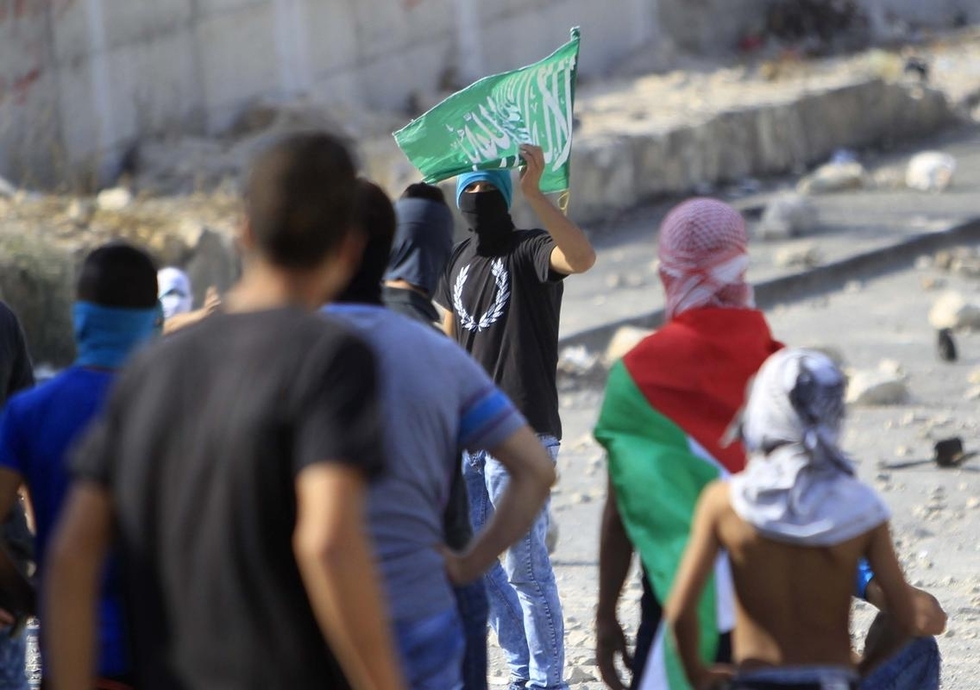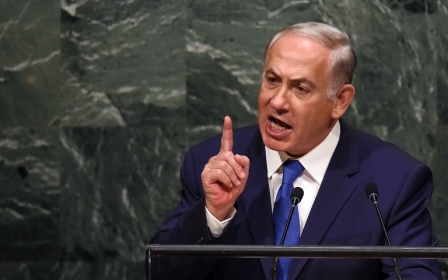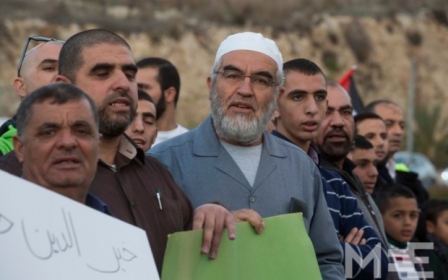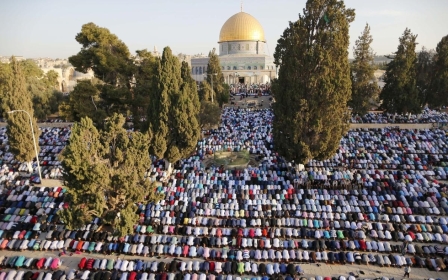Netanyahu faces possible civil war

The last few weeks have seen a discussion in Israel whether the recent deadly events are the beginning of a new Intifada or just a periodic burst of violence. The killing of two settlers near Nablus on Thursday and of two Israelis in the old city of Jerusalem on Saturday, combined with wide-scale clashes all over the West Bank and Jerusalem have put an end to this discussion. Israelis and Palestinians are entering a new phase in their conflict, whether we name it an Intifada or not.
In the coming cabinet meeting, scheduled for Monday, Prime Minister Benjamin Netanyahu will surely come under attack. The Jewish Home party, headed by Education Minister Naftaly Bennett and Justice Minister Ayelet Shaked will claim that his supposedly soft approach towards the Palestinians led to the current rise in violence. Similar voices are heard within his own Likud party.
Bennett and Shaked's demands are either vague or difficult to implement. They would like to see "a freer hand" for soldiers and policemen towards Palestinians, yet the killing of a Palestinian woman last week in Hebron suggests that the soldiers' hands are not really tied. They would also like to see the building of new Jewish neighborhoods in the West Bank, but even if such a decision could be taken, it will take years to fulfill it. And they want to send the Palestinians back to jail that were released two years ago during the deal to release the Israeli soldier Gilad Shalit, but this move raises serious legal problems.
Yet even if Netanyahu survives the political pressure, the choices he faces now are truly difficult. To a certain extent, his government faces a tougher and more complicated situation then it did last summer before launching Operation Defensive Edge in Gaza. Israel has up her sleeve a military answer for rocket attacks from Gaza: to react in a disproportionate way against the Hamas-controlled Strip.
The enemy within
This time around, the Israeli army does not have in front of it an area easily defined as "enemy territory". The attack on Thursday near Nablus took place on a road in area C in the West Bank, meaning under full Israeli control. The attack in the Old City of Jerusalem happened in a city which Israel annexed 48 years ago and in which the Palestinian Authority and its forces have no say.
Israel cannot send its F16 aircrafts to bomb the old city of Jerusalem, a few hundred metres from Temple Mount/Haram a-Sharif. Neither can it send them to attack Al Bireh, the Palestinian town from which the attacker in Jerusalem came from, as Al Bireh itself borders with the nearby settlement of Psagot. While the Israeli pull-out from Gaza in 2005 made it easier for the Israeli army to use extensive force against presumed targets there, the situation in the West Bank and Jerusalem, with its 600,000 settlers, is completely different.
Even the calls for a renewed "Operation Defensive Shield," the name given to Israel’s reoccupation of Palestinians towns in the West Bank in 2002 in an effort to quell the Second Intifada, seem rather vane. As residents of Ramallah, Bethlehem and Jenin may testify, Israeli forces enter Palestinian cities and towns regularly in the West Bank. There is no need to reoccupy areas in which the Israeli army is already present.
In similar cases in the past, Israel used to threaten that it will bring about the collapse of the Palestinian Authority if its leaders would not comply with Israel's security demands. Now, after President Mahmud Abbas' speech at the UN General Assembly last week, in which he declared that he is not committed to the Oslo agreements with Israel anymore, even this threat seems empty.
Israel needs PA more than ever
The last thing on earth that Israel wants is the collapse of the Palestinian Authority, as it will have to take the responsibility over the lives of millions of Palestinians. Israel will hesitate to help Abbas implement his threats, the authenticity of which many Palestinians doubted anyway.
Since he was reelected in 2009, Netanyahu has been a strong believer in the status quo. Apart from Operation Defensive Edge last summer, he refrained from dramatic military or political moves vis-à-vis the Palestinians. His Defence Minister Moshe Yaalon tries to manoeuvre between a stalled political process, a strong hand against Palestinians and modest alleviations on the freedom of movement of Palestinians in the West Bank. The relative calm in the West Bank until recently seems to suggest that they were right.
However, recent events appear to make the maintaining of the status quo very difficult, if not impossible. Netanyahu is of course responsible for what happens at Haram a-Sharif/Temple Mount, but the initiative to intensify the Jewish presence on the mountain was taken by rightwing activists and settlers, not by his government. The Palestinian activists who oppose and clash with these settlers in Jerusalem are also not sent by Abbas or his men. They are provoked more by anger and fear that the Jews are allegedly going to take over Al Aqsa.
The current round of violence has more resemblance to a civil war between Jews and Palestinians than an organised confrontation between an armed guerrilla force and a regular army. The large scale of attacks by settlers against Palestinians this weekend is a clear sign of events moving in this very dangerous direction.
With the peace negotiation all but dead, with the Palestinians losing confidence in Abbas and his ability to bring any change and with the most extreme right-wing government in Israel's history, it is not easy to see who can mediate between Israelis and Palestinian and convince them to return to the status quo. Netanyahu will do his best to leave things as they are. But he very well may have missed the train.
- Meron Rapoport is an Israeli journalist and writer, winner of the Napoli International Prize for Journalism for a inquiry about the stealing of olive trees from their Palestinian owners. He is ex-head of the News Department in Haaertz, and now an independent journalist.
The views expressed in this article belong to the author and do not necessarily reflect the editorial policy of Middle East Eye.
Photo: Palestinian protesters confront Israeli security forces during clashes over the Al-Aqsa mosque compound in east Jerusalem neighborhood of Issawiya on October 4, 2015. (AA)
New MEE newsletter: Jerusalem Dispatch
Sign up to get the latest insights and analysis on Israel-Palestine, alongside Turkey Unpacked and other MEE newsletters
Middle East Eye delivers independent and unrivalled coverage and analysis of the Middle East, North Africa and beyond. To learn more about republishing this content and the associated fees, please fill out this form. More about MEE can be found here.





